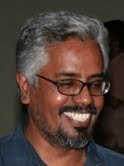Adieu, Laurie Baker (1917- 2007)



"My feeling as an architect is that you're not after all trying to put up a monument which will be remembered as a 'Laurie Baker Building' but Mohan Singh's house where he can live happily with his family" - Laurie Baker
With the demise of Laurie Baker, we have lost a great visionary. He was not just a great architect and but was also a wonderful human being, warm and humorous, one who was deeply and truly creative in his everyday life and work. Architecture was not a profession for him; it was a way of life and a creative act that involved constant imagining and improvisation; exactly why he towers above his imitators. He was a master at his craft, no doubt, but he always had an open mind and eye, open to the surroundings, the needs of the inhabitants and keenly sensitive to all kinds of resources – human, material and financial. Resources were never a limitation for him, and no resources were 'limited' for him. The surroundings lent itself to him in wonderful ways; he found the materials and skills he needed from it, never forcing it but always yielding to it to make it yield. All the structures he built stand testimony to this dynamic openness of his.
So, it was very disturbing and humiliating to hear many a journalist and admirer calling him 'poor man's Master Mason' (Pavangalude Perunthachan). For it misses the whole point of his vision. By focusing on affordability ('cheapness'), such categorizations underplay or make invisible his aesthetics of creating spaces for habitation. He built houses for the poor and the rich, for people from all walks of life, for religious and secular institutions, and for functional and meditative purposes. It was his art that drew people to him. And he built for them wonderful structures of great aesthetic and architectural value. That those grand abodes were affordable to all only makes him an architect for all. He himself proclaimed that he worked for the poor, but the houses he made were not 'poor man's houses' but the most cozy and elegant of spaces. The attitude behind the above statement draws from the notion that what is functional/simple cannot be beautiful, or what is 'beautiful' has to be necessarily useless (purely decorative) in order to be called so. Baker subverted this elite notion and re-invented the great artisan tradition to create beauty out of functional objects, spaces created out of materials from here and now, around and amidst us. His are not those imposing structures (like many a building that we see around us which are rather loud statements than living spaces) but ones that held many secret and mysterious spaces within, which can be constantly 'discovered' and explored.
The second 'allegation' was that the malayalees didn't deserve him. Many an intellectual was bemoaning this 'discovery' that malayalees were ungrateful to him and his ideas. It is true that majority of the buildings are monstrous uninhabitable structures and to use Baker's term 'functionally dishonest'. But that only made his vision and mission even more relevant, and the ripple he created still retains resonance. Despite all odds and oppositions, he exuded a rare zest for life, left behind in the form of buildings, memories, institutions and ideas. Whatever little I know of him, and from whatever interaction I had with him, I have never ever felt so. He was an immensely contented man who was very much at home (sometimes very hilariously so). He did have many a quarrel with the establishment – not only about housing or architecture, but also about world views, development philosophy, urban planning, etc. And he did get his acerbic points about all these through with his posters, cartoons, anecdotes, cryptic comments and observations. And it is indeed a tribute to the openness of the malayalee society that he made Kerala his home (apart from other considerations), could build more than a thousand buildings, create institutions like Costford to take his mission forward and also inspired a number of followers through his work. So it is indeed painful to see our friends wasting their self-hatred on such a noble human being like Baker, the source of which is not admiration or respect but a deep and bitter cynicism, something that Daddy successfully fought all his life. In the process he not only constructed happy and creative spaces to live and work, but also created ways of living and working that are free, open and playful.
Photographs: Courtesy, Frontline
Labels: laurie baker, vernacular architecture



